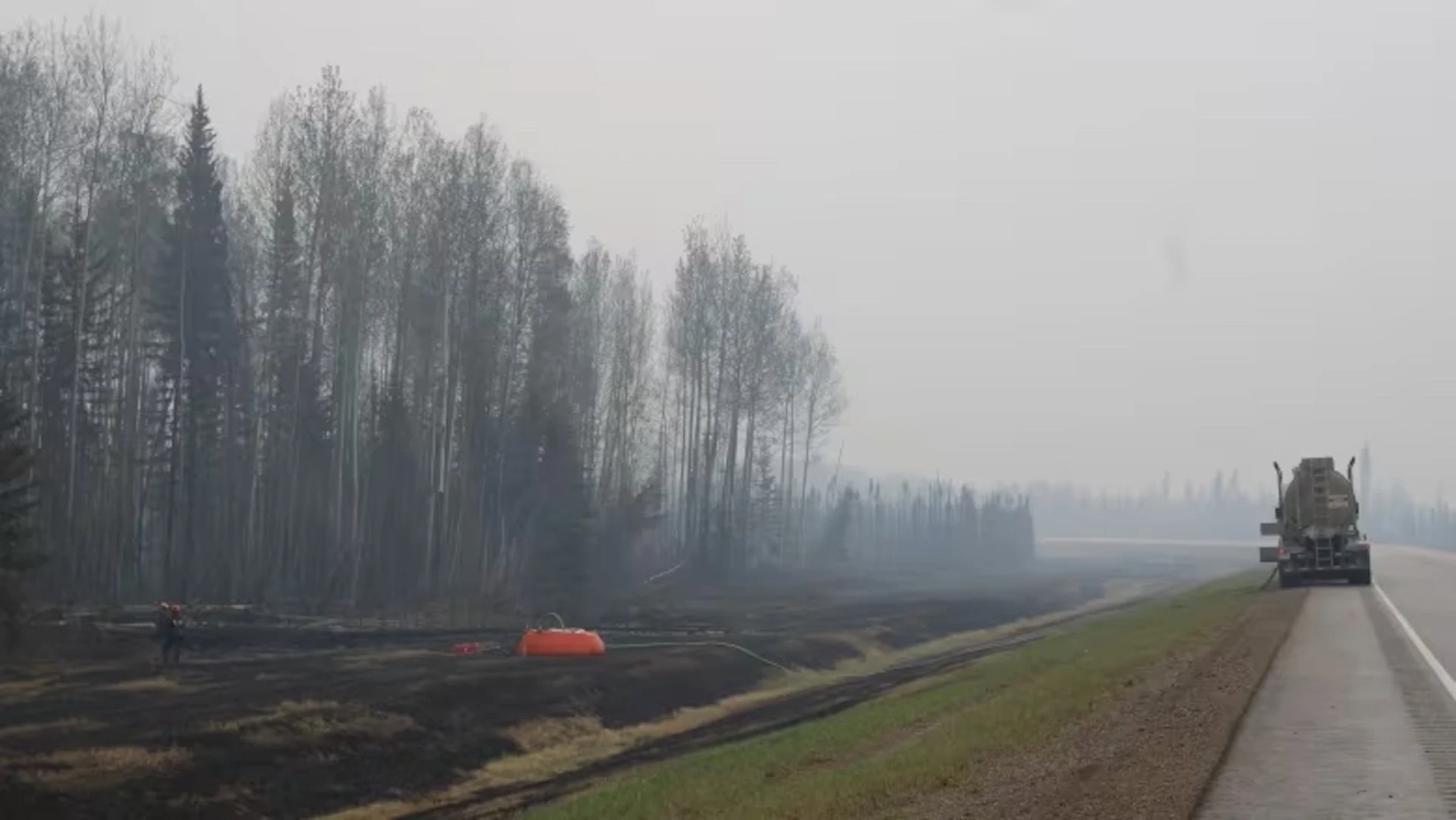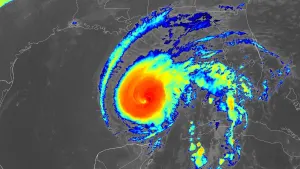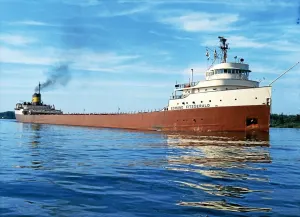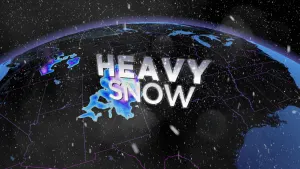
Multiple homes destroyed in Fort Nelson, B.C., wildfire, officials say
Officials have confirmed that multiple homes have been damaged, and some destroyed, as a wildfire west of Fort Nelson, B.C., continues to burn Sunday.
In an update on Saturday, the Northern Rockies Regional Municipality (NRRM) said a total of 10 properties were damaged by the Parker Lake fire, which started on May 10 after a downed tree hit a power line.
CANADA'S WILDFIRES: Visit The Weather Network's wildfire hub to keep up with the latest on the active start to wildfire season across Canada.
Of the 10 properties, four were homes that have been destroyed — three occupied and one unoccupied, according to Rob Fraser, the regional municipality's mayor.
Fraser said he'd been able to contact most of the impacted property owners, calling it "one of the most difficult things I've done in my career."
Not all of the remaining six damaged properties were homes, he said, noting some were sheds and workshops.

The Parker Lake fire currently covers an area of around 123 square kilometres and is burning just west of the community in northeast B.C. It resulted in more than 4,700 people being placed on evacuation order from the town and the nearby Fort Nelson First Nation.
Photos and videos taken by residents who did not follow the evacuation order have been circulating online, showing several properties damaged near the origin of the fire, along the highway outside of Fort Nelson. While some buildings are standing and appear unharmed, others show visible damage.
Videos show visible fire damage
At some properties, buildings appear to have been reduced to blackened rubble. Burnt trees, grass and scorched vehicles can also be seen. It is not immediately apparent what kind of buildings have been impacted in each of the images.
Fraser had previously condemned residents who shared videos of the damage, saying officials were working to confirm the extent of damage and reaching out to property owners directly. On Sunday, he told CBC News that he has been in touch with most property owners, but he couldn't reach the others.
"All of them knew because of the social media that has gone around," Fraser said.

The west flank of the Parker Lake fire near Fort Nelson, B.C., is pictured on May 13. (BC Wildfire Service)
"It just so stuns me that people can be so insensitive as to post that sort of thing… but I was the official sort of messenger and it's hard. It's so hard for me, but more so for them."
Fraser said that he would talk to the people who posted the videos of the fire, after the state of emergency had ended for his community. But he reminded people to be sensitive amid trying times for the town.
On Friday, B.C.'s emergency management minister confirmed the building damage, but says there have been no new reports of buildings burning in recent days.
Speaking at a news conference, Bowinn Ma confirmed early reports that some buildings had been damaged in the immediate aftermath of the fire starting, but said she has not heard about any additional losses since then.
"We are not aware of any new structure losses since May 10, May 11," Ma said.
SEE ALSO: Essential items for your emergency "grab-and-go" kit
On Sunday, the B.C. Wildfire Service (BCWS) said in an update that the forest around the wildfire had dried up after a bout of rain late last week had passed through.

A BC Wildfire Service truck, with a water bladder in tow, is seen responding to the Parker Lake wildfire along Highway 97 near Fort Nelson, B.C., on May 15. Officials have confirmed homes have been destroyed in the blaze. (BC Wildfire Service)
"With higher temperatures and lower relative humidity, it is possible that fire behaviour will increase [Sunday] in certain areas," the service said.
The BCWS added, however, that overall conditions remain favourable for firefighting on Sunday, and crews were set to continue making direct attempts to control the Parker Lake wildfire.
In a video update on Sunday evening, BCWS said they are currently working in the northwest corner of the Parker Lake wildfire, setting up direct control lines in the area.
In the coming days, the wildfire service expects to see cooler conditions although the next two days might be dry.
"We don't expect that to have a significant effect on fire behaviour, it does give us a chance to understand where there are potentially more areas of heat and focus our resources there."

The scars of the province's record-breaking wildfire season are visible around the perimeter of the Great Beaver Lake wildfire in northeast B.C. in late October 2023, with the ground still smouldering. Holdover fires pose a threat amid drought conditions in B.C. (Kate Partridge/CBC)
The much larger Patry Creek wildfire — a holdover fire that first started in 2023 — is burning around 25 km north of Fort Nelson.
"The Patry Creek wildfire does not pose an immediate threat to Fort Nelson, but conditions can rapidly change if the area receives strong northerly winds and continuous dry conditions," the BCWS says.
Fort Nelson is in the province's far northeast, about 1,000 kilometres north of Vancouver and about 800 kilometres northwest of Edmonton.
Officials begin re-entry plans
In another update Sunday, the NRRM said that it had begun readying essential services in the town in preparation for residents to return — by providing access to utilities, medical services and grocery retailers.
The regional district cautioned, however, that the community has not yet been given the all-clear by firefighting crews to allow residents to return, and did not provide an exact timeline for when that could occur.
It added both Highway 97 and Highway 77 remain closed due to wildfires, but residents are now allowed to apply for permits which allow people to re-enter the town if they need to feed livestock or maintain critical infrastructure.
"Please be patient as we put the meat onto the bones of our plan," Fraser said. "Every fire is different. Every return to the community is different.
"There are no experts out there that really can help us do it… We're going to bring people back in a phased manner in the most appropriate way that we can."
WATCH: Wildfire smoke travels across the country
Thumbnail courtesy of BC Wildfire Service via CBC.
This article was originally written by Akshay Kulkarni and published for CBC News on Sunday, May 19.









